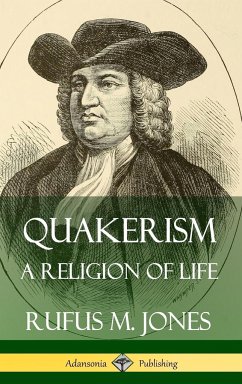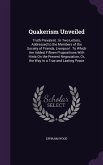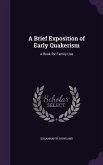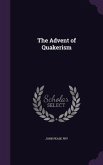Rufus Matthew Jones lays out the tenets of Quaker religion, helping the reader to understand and appreciate the tenets of morality, the beliefs and the customs which comprise the Quaker tradition. Founded in the 17th century as an alternative creed to Puritanism, the Quaker movement was one of the most successful Christian creeds. Its unique interpretation of the message of Christ, and its pioneering ideas of collaboration and cooperation, drove followers to forge great bonds of strength and enterprise. Amid persecution and upheaval in England, many Quakers decided to emigrate to colonial North America - their presence is prominent in the history of New England, and many Quakers would go on to become successful and respected figures in civic life. Rufus Jones was born in Maine to a family with a long history of activity in the Quaker movement. Proving to be an able student of theology and philosophy, his expertise in these subjects is reflected in his lectures and writings.
Bitte wählen Sie Ihr Anliegen aus.
Rechnungen
Retourenschein anfordern
Bestellstatus
Storno








